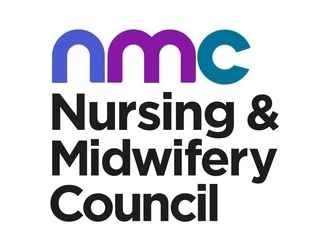Wearing a Nursing Uniform on Your Wedding Day: A Growing Trend in Zambia That Deserves Reconsideration
Published: April 7, 2025
A recent image from Zambia has gone viral, showing two nurses wearing their full nursing uniforms while sharing a kiss on their wedding day. While this may be seen by some as a personal expression of pride in their profession, I believe it raises important questions about the role of uniforms, particularly in the healthcare field, and their place in personal celebrations.

The Symbolism of a Nursing Uniform
A nursing uniform is not just attire; it represents the vital role we play in the healthcare system. It signifies our commitment to patient care, our professional identity, and the responsibility we carry as life-saving professionals. The uniform is worn with pride during our everyday work, whether in hospitals, clinics, or healthcare settings. When we wear it, we are aligned with the values of the nursing profession: compassion, expertise, and ethics.
This is where the issue lies. Nurses wear uniforms to signify their professional role, to distinguish themselves in their workplace, and to highlight their expertise in healthcare. The idea of wearing the nursing uniform at personal milestones—such as a wedding—raises ethical concerns. Weddings are deeply personal celebrations, and the use of a professional uniform during such moments can undermine the meaning and significance of both the event and the profession.

A Comparison with Other Professions: Military and Beyond
Some might argue that wearing a uniform on a special day is not unusual. After all, members of the military, police, and other uniformed professions often wear their uniforms on significant occasions, such as weddings. In these cases, the uniform is a symbol of pride and respect for their respective roles.
However, the key difference here lies in the nature of the professions. While military or police uniforms are worn as symbols of service to the nation, these professions are distinct in how they operate. The military’s uniform represents their duty to the state, their role in defense, and their commitment to a cause. But for nurses, the nursing uniform is primarily a tool used in professional healthcare settings—not for personal celebrations.
Using the nursing uniform for weddings potentially diminishes the special nature of both the wedding event and the nursing profession. The uniform is meant for clinical settings—where it represents life-saving duties, not for romantic or personal moments.
Weddings and Uniforms: Where Do We Draw the Line?
It’s important to recognize that there are acceptable contexts for wearing uniforms outside of work. For instance, proposing in a uniform during graduation can be seen as a meaningful tribute to the transition from a nursing student to a professional nurse. But a wedding is a completely different context. It’s a moment to celebrate love, commitment, and union—not a professional achievement.
While some may view wearing a uniform for a wedding as a personal choice, we must also ask: Should this be normalized? Should we allow the line between personal milestones and professional identity to blur in such a significant way?
Reconsidering the Use of Uniforms for Personal Celebrations
This trend raises questions that go beyond the individual. What message are we sending when we use the nursing uniform for personal events? Are we suggesting that the uniform is interchangeable with any other piece of clothing, when it should represent much more?
We need to remember that uniforms are not just worn for the convenience of identification; they carry respect, responsibility, and ethical standards. They reflect the weight of the role we play in society. For a nurse, the uniform signifies a commitment to patient care, not just a wardrobe choice.
A Call for Reflection and Open Discussion
The rise in popularity of wearing a nursing uniform on wedding days deserves a deeper conversation. While we respect personal choices, it’s essential to reflect on how these choices impact the image of the nursing profession. Should we allow professional uniforms to be used for personal milestones, or should we protect the integrity of what these uniforms represent?
As nurses, we must be thoughtful in how we present ourselves to the world. The nursing profession has earned respect and credibility through years of hard work, compassion, and service. We should carefully consider how our actions—whether in uniform or not—affect the image of our beloved profession.
I’d love to hear from fellow nurses and healthcare professionals: What do you think about this growing trend? Should uniforms be reserved for professional settings, or is it acceptable to wear them for personal celebrations like weddings? Let’s discuss this together and help shape how the nursing profession is viewed by the world.
Stay tuned for more insights on nursing, professionalism, and the role of uniforms in our daily lives. Your thoughts and opinions matter in the ongoing evolution of our profession.










